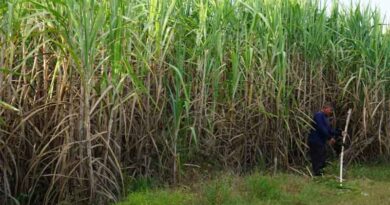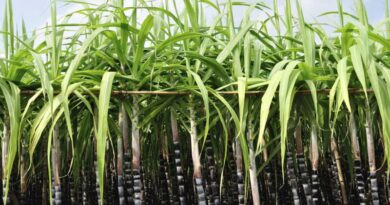Converting waste to energy: a sugar mill finds a new way
27 December 2022, New Delhi: LATUR-BASED Natural Sugar and Allied Industries’ sugar mill in Osmanabad aims to add another dimension to the industry’s constant foray into newer avenues for revenues. This mill, located in Kalamb taluka of Osmanabad, aims to utilise press mud to manufacture bio CNG.
Bhairavnath B Thombare, chairman and managing director of the mill, said this technology will help mills reutilise the agricultural waste which so far has only been used as manure.
Press mud refers to the agricultural waste obtained when cane juice is repeatedly filtered before being sent for extraction of sugar. The filters are cleaned periodically, and the waste is deposited into the yard of the mill. Nearly 3 to 4 per cent of press mud is obtained when per tonne of cane is crushed. At present, mills recycle this agriculture waste as manure by composting the same and supply it to the farmers in the area.
Thombare, however, pointed out that the act of compositing takes away the valuable gas from the mud, which if extracted, can be used as fuel. “In a nutshell, the process would involve treating press mud, reduce its BOD (biological oxygen demand) and COD (chemical oxygen demand) and separating the natural gas from the slurry. While the gas so obtained would be compressed and sold to the fuel company as bio CNG, the slurry would make for excellent fertilizers both liquid and solid,” he said. Press mud, Thombare said, as it could not be used directly as a fertilizer, needs to be composted. The plant, he explained, will ensure no natural gas is lost in the process.
A pilot plant of this technology was operated in the Warna Cooperative Sugar Mill in Kolhapur. The plant in Osmanabad would use 100 tonnes of press mud per day and produce 5-6 tonnes of bio CNG. The Hindustan Petroleum Company (HP) has agreed to purchase the same from the mill at the rate of Rs 75/kg.
During six months of the sugar season, Thombare’s mill produces nearly 40,000 tonnes of press mud. “Our calculations show that we would require nearly 35,000 tonnes of press mud to run the plant year-round. Thus, raw material availability would not be a problem for us,” he said. This, Thombare pointed out, would be another avenue for the sugar mill to generate revenue.
Also Read: Mahindra’s Tribute to Indian Farmers on Kisan Diwas
(For Latest Agriculture News & Updates, follow Krishak Jagat on Google News)















